SUVs have made a startling rise in Germany. Now comes the backlash
- Share via
BERLIN — Germany has narrow streets, small parking spots, high gas prices and widespread angst over climate change — not exactly ideal terrain for SUVs.
But over the last five years, German sales of Gelandewagen, as SUVs are also known here, have doubled, last year topping 1 million, or nearly a third of all new vehicle purchases.
Industry analysts attribute the rise to heavy advertising by German carmakers — which have had great success selling them in the U.S. — and an aging population that finds the high-riding cars easier to get into and out of.
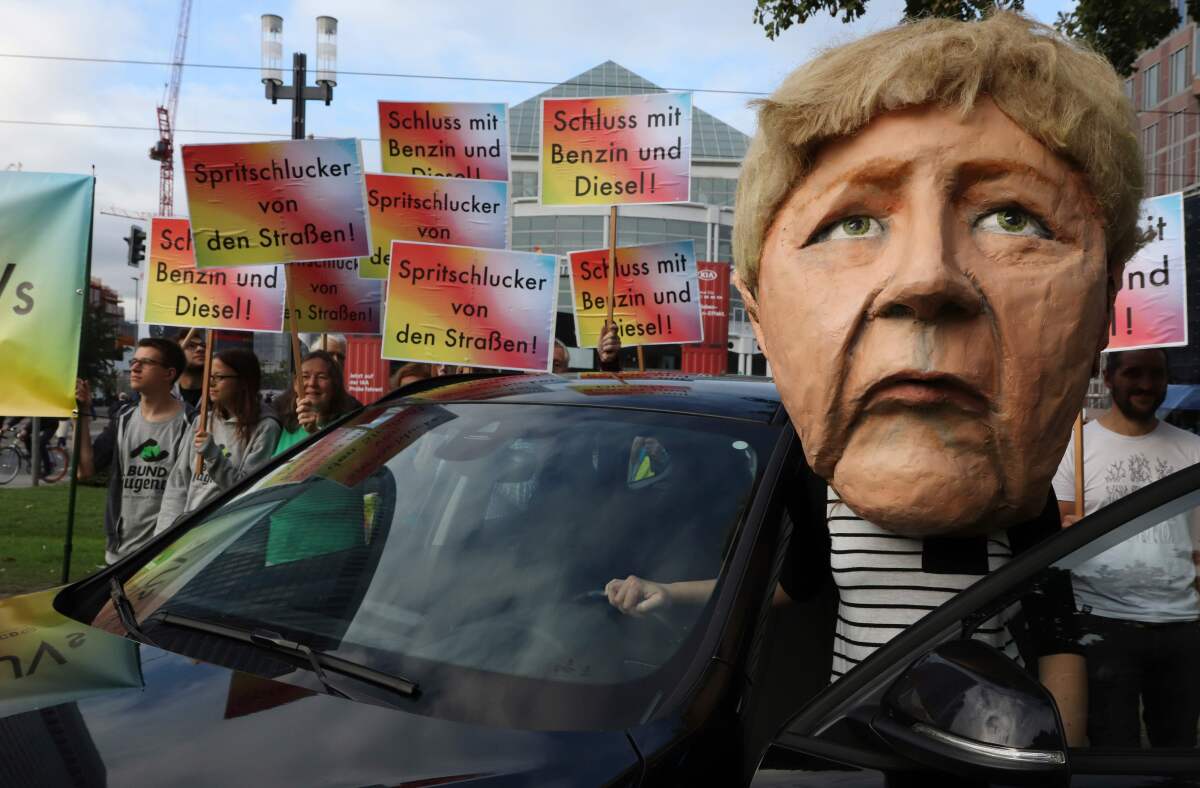
Their popularity has opened a deep rift in Germany, with SUV owners put on the defensive by opponents who say the vehicles are an affront to national values of practicality and environmental awareness. Luxury models have become a favorite target of anarchists, who have burned more than 300 parked vehicles this year in Berlin.
Tensions boiled over this month when a Porsche Macan jumped a curb in central Berlin and plowed into a crowd of pedestrians, killing four people, including a 3-year-old boy and his grandmother.
Never mind the news reports — unconfirmed by police — that the 42-year-old driver may have suffered an epileptic seizure or that even a compact car could have also been deadly.
The accident unleashed long-simmering rage over vehicles that are often seen taking up two parking spaces and widely condemned for driving up carbon emissions from vehicles as it becomes clear that Germany will fail to meet its 2020 target of reducing carbon from all sources by 40% from 1990 levels.
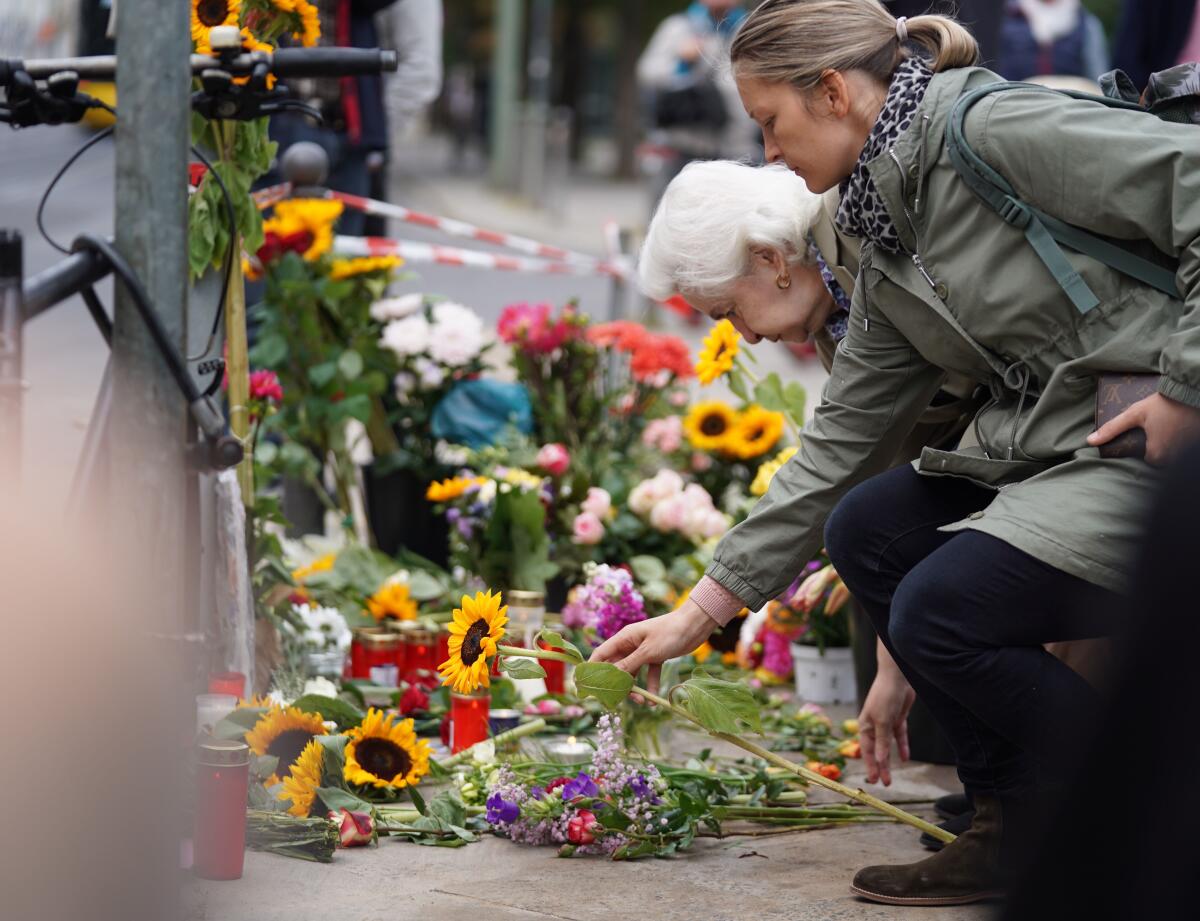
The day after the crash, hundreds of demonstrators gathered at the scene to hold a vigil for the victims and block traffic by sitting in the busy road. Some carried posters calling SUVs “Motorsierte Mordwerzeuge,” or motorized murder tools.
Politicians from the Greens party weighed in with calls to ban or limit SUVs in cities.
“There’s simply no need for cars built like tanks to be on the streets in the city,” tweeted Stephan von Dassel, mayor of the Berlin Mitte downtown district where the crash happened. “They’re not only destroying our climate but they’re also intimidating even when they’re not in accidents. Even the tiniest mistake driving them can put lives at risk.”
Oliver Krischer, the party’s deputy parliamentary floor leader, told Der Tagesspiegel newspaper that he favored “a national law that would allow towns and cities to impose whatever size limit they want.”
To enact such changes, the Greens would have to wait until at least the 2021 election and team up with other leftist parties that have also advocated for limits on SUVs in cities.
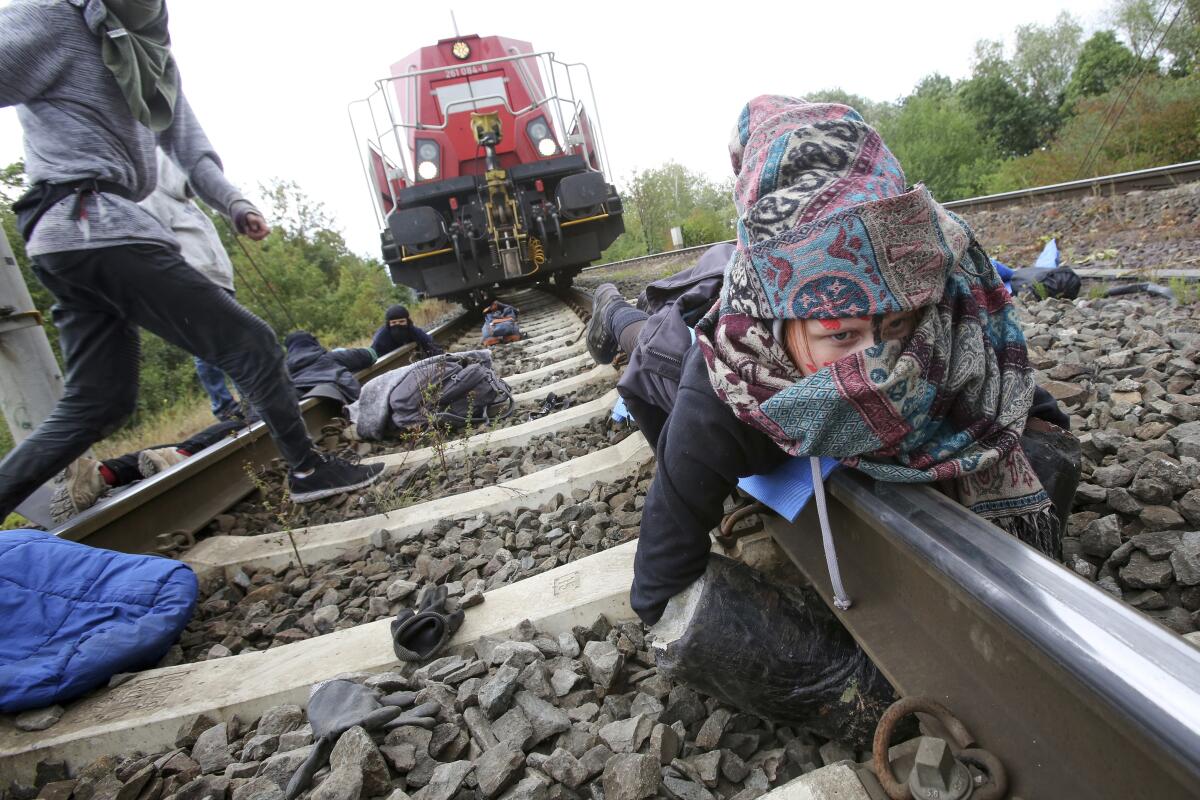
Greenpeace and other environmental groups as well as the Attac movement against multinational corporations were planning anti-SUV protests this weekend at the opening of the Frankfurt international car show, a major global showcase event that will feature the latest offerings from Audi, BMW, Volkswagen and other German carmakers.
“German car companies invested more money in advertising for SUVs than in all other car segments combined,” said Benjamin Stephan, who works on transportation issues for Greenpeace. “They’re fueling the rising demand for SUVs with these ads and doing everything they can to get people to buy these big cars because of the fat profit margins.
“We’re in the middle of a climate crisis, and the car industry just doesn’t get it,” he said. “They’re here celebrating their gas guzzlers instead of looking for ways to get away from combustion engines.”
The issue has become so charged that on the streets of Berlin it was difficult to find SUV drivers willing to be interviewed about it.
“It’s a really stupid idea to ban SUVs from the cities,” said Razak el Beja, 71, a naturalized German who moved here from Tunisia 50 years ago to work as a car mechanic.
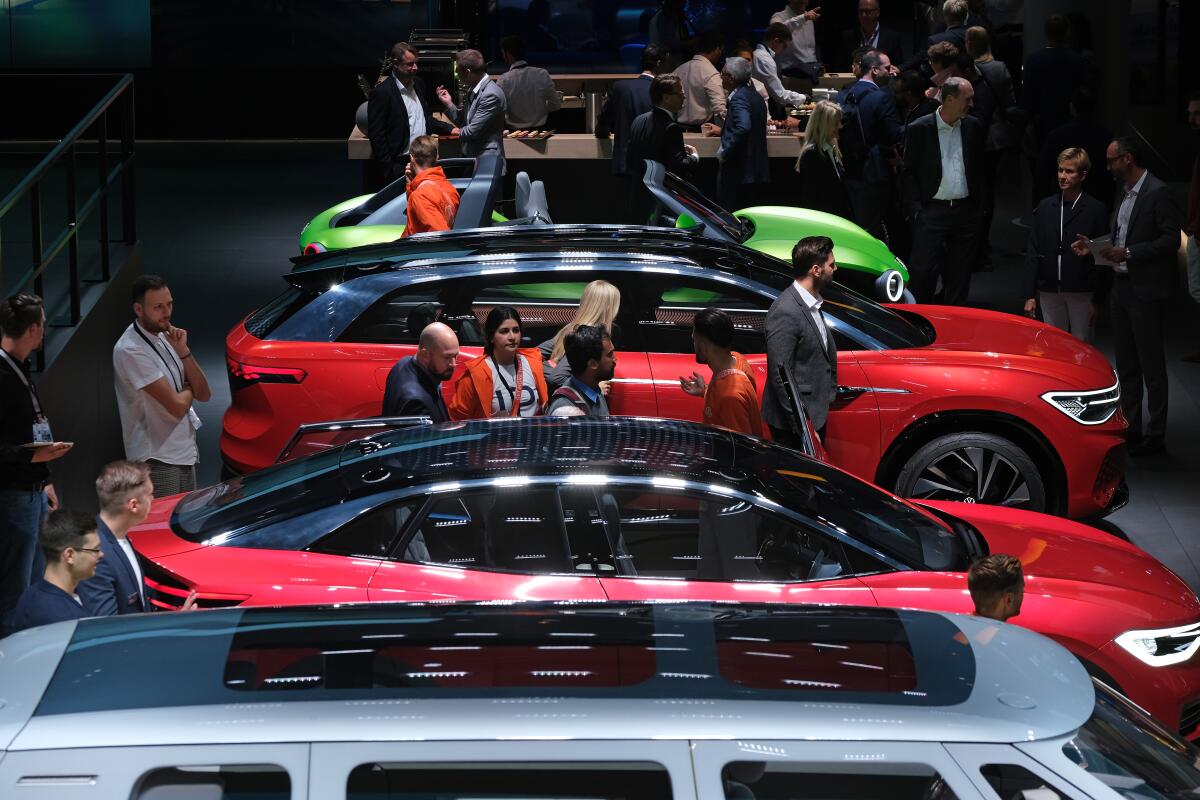
“It’s too late now,” he said as he polished his blue Volkswagen Touareg. “The environment is already a mess. What’s the point of stopping SUVs from coming into the city when you have delivery trucks and 18-wheelers everywhere as well?”
Car industry executives criticized the activists, accusing them of politicizing the fatal accident.
“What happened in Berlin saddens me,” said Hans Dieter Poetsch, the supervisory board chairman of Volkswagen, in an interview with Die Welt newspaper. “But it’s hard for me to blame the car involved in that accident.”
Oliver Luksic, a senior member of Parliament for the opposition Free Democrats party, told German Radio that the SUV opponents were simply envious. “In my mind, customers should be free to buy whatever car they want,” he said.
Yvonne Seiler, a secretary in Berlin and a proponent of its extensive public transportation system, said she favors ridding the city of all cars, starting with “giant SUVs belching emissions.”
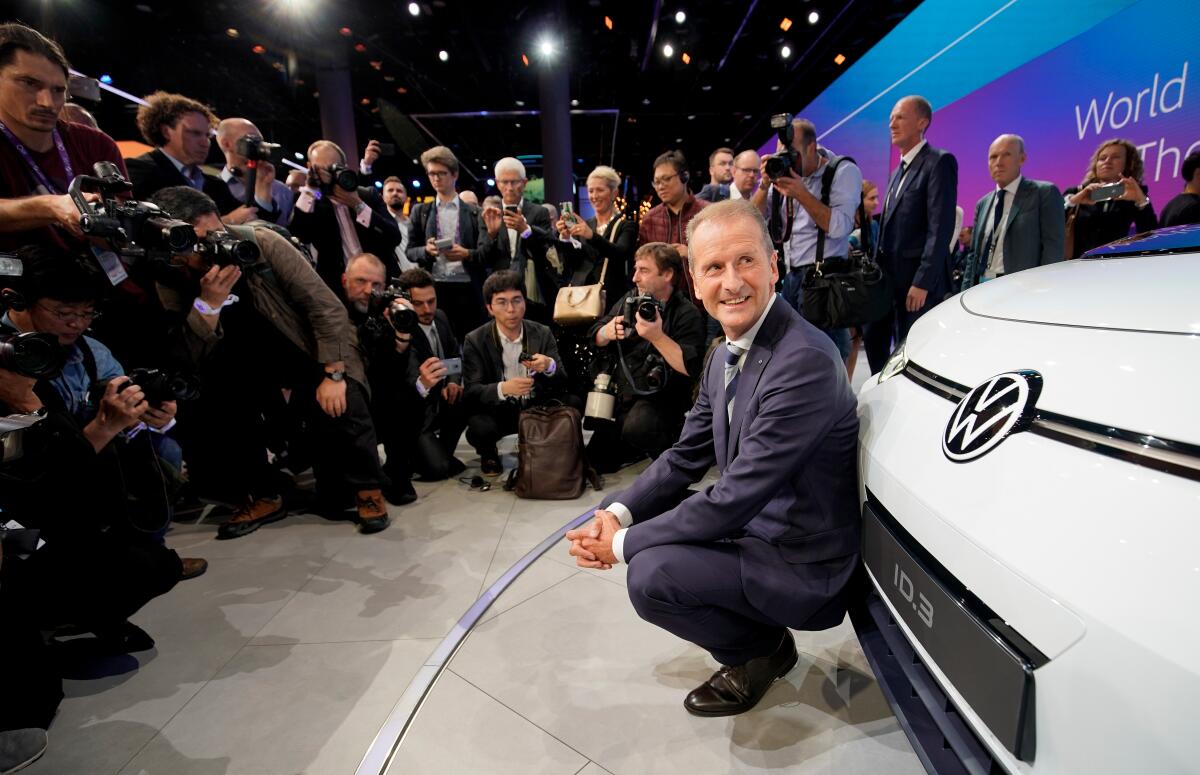
“You don’t need a car in Berlin,” she said. “I’ve gotten along fine without one.”
Still, she lamented that the debate seems to have gotten out of control since the accident.
“Instead of talking about whether it makes sense to have these giant SUVs in the city due to environmental or space reasons, people are arguing about individual freedom,” she said.
SUVs once faced a similar backlash in the U.S., but the revolt died out, and last year they accounted for about 48% of the 17 million new car sales there.
“Americans love their big SUVs and there’s nothing wrong with that — there’s plenty of space there,” said Ferdinand Dudenhoeffer, a car industry analyst at the Center for Automotive Research at the University of Duisburg-Essen.
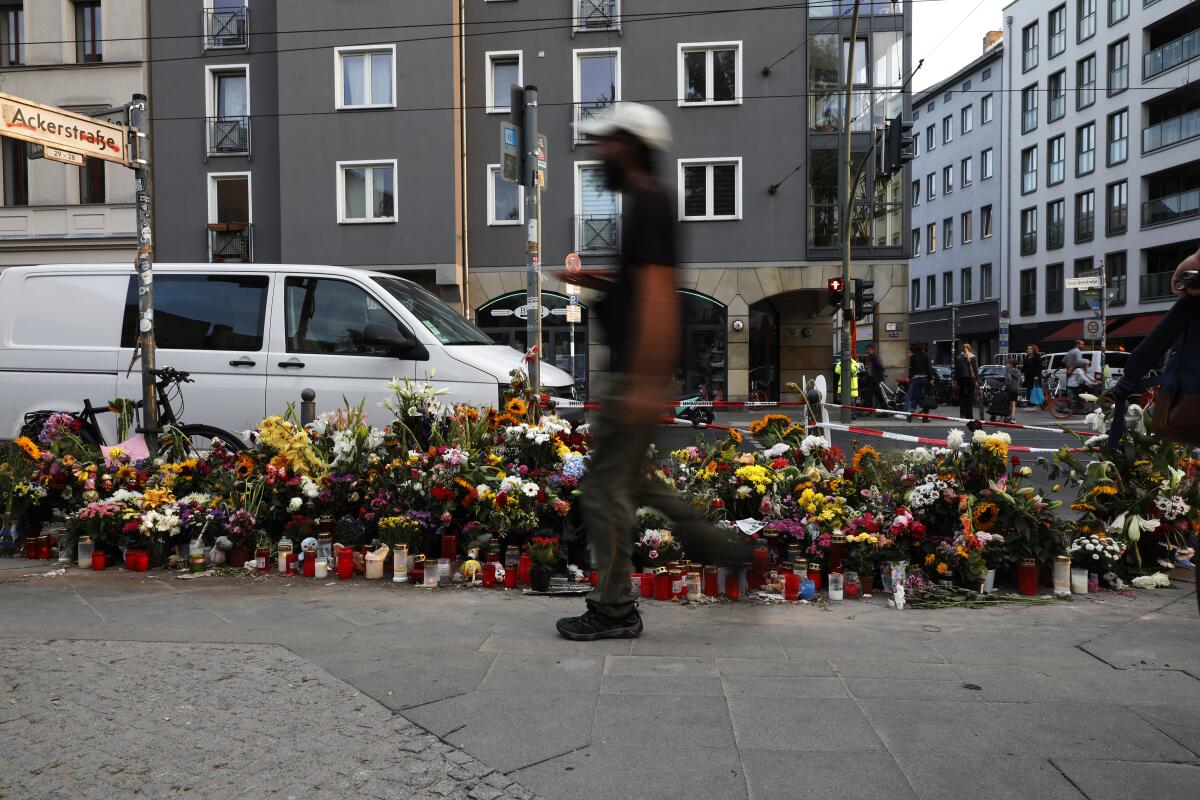
He said automakers could ease tensions with the public by pulling “monster cars” from the German market to focus on smaller SUVs, which already make up the bulk of sales.
“They should wake up before it’s too late and they’re facing new laws that will end up restricting SUVs a lot more,” he said. “Sell the monster SUVs in the United States or Saudi Arabia where there’s room, but not in Europe.”
More to Read
Sign up for Essential California
The most important California stories and recommendations in your inbox every morning.
You may occasionally receive promotional content from the Los Angeles Times.













